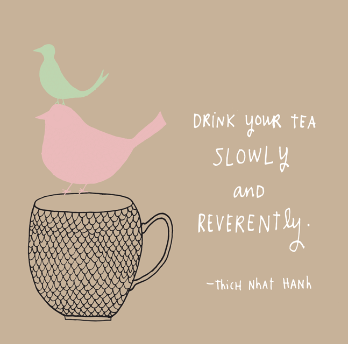Alison Carrington,
Graduate Practitioner, Paua Clinic
Mindfulness appears to be a modern-day buzz-word, yet it is has been practiced for thousands of years, and is one of the foundations of Bhuddism. Being mindful takes you to a state of active, open attention on the present moment, where you are able to observe your thoughts and feelings from a distance, without judging them as good or bad. Instead of letting life pass you by, mindfulness means living in the present and awakening to experience of simply being in that moment. In this fast-moving age, where stress is often worn like a badge, it can be difficult to slow the mind down, to connect with ourselves and to just “be”. You could say that mindfulness helps us be less of a Human Do-ing and more of a Human Be-ing.
Many studies have shown that mindfulness and meditation can have a profound effect on the immune system, mental clarity and concentration, reducing stress, anxiety and depression, and many more benefits. As Naturopaths, we are able to use tools such as mindfulness to give our clients the gift of time; permission to slow down and be present and to discover who they are in the process.
Mindfulness can be practiced in so many aspects of ordinary life: hanging the washing on the line or washing the car; noticing not only the colour of the flower in the garden, but the insect inside the flower. The act of preparing and drinking a cup of tea, for example, seems simple enough, but tea made with mindfulness can become more of a sensory experience: the selection of dry tea leaves, the sound of steam building up in a kettle, the colour developing, a fragrance wafting, testing the temperature, sipping, tasting and then quiet contemplation. In fact, tea-making, when done thoughtfully, is a completely different activity.
The Vietnamese Bhuddist monk Thanh Nich Hanh says: “To be mindful is to be fully present with whatever we are doing. If you are drinking tea, just drink your tea. Do not drink your worries, your projects, your regrets. When you hold your cup, you may like to breathe in, to bring your mind back to your body, stop your thinking, and become fully present. In that moment, you become real and the cup of tea becomes real. In this state of true presence and freedom you enjoy simply drinking your tea.”
Speaking of tea, the word “tea” refers to the leaves of the Camellia sinensis plant, and all varieties of black tea – English Breakfast, Earl Grey and so on can be derived from this one plant, their flavours differing according to how the leaves have been fermented. There are a myriad of other teas which are technically herbal teas or tisanes, and are usually made in a cup or pot with an internal strainer and often a lid to contain the beneficial volatile oils that the hot water helps to release.
Mindfulness and tea are clearly a great combination. Here is a simple recipe for Nettle Tea, a herb that is high in iron, potassium, calcium, manganese and vitamins A, C and D. Medicinally, it both strengthens and heals your kidneys and adrenal glands.
1 tablespoon dried nettle leaves
1 cup boiling water
1 teaspoon honey if desired
Steep the dried nettles directly in the water for 10 minutes and strain. You may also add a spring of mint and a slice of lemon.
Enjoy!
References
Browne, J. (2015). The good living guide to medicinal tea (1st ed.). New York, New York, US: Good Books.
Firestone, L. (2013). Benefits of Mindfulness. Psychology Today. https://www.psychologytoday.com/blog/compassion-matters/201303/benefits-mindfulness
Garms, G. (2017). Stinging Nettle Tea and Infusions. Alderleaf Wilderness College. http://www.wildernesscollege.com/stinging-nettle-tea.html
Halliwell, E., & Halliwell,. (2017). How to Be Mindful With a Cup of Tea – Mindful. Mindful. http://www.mindful.org/mindful-cup-tea/
Saron, C. (2017). Shamatha Project. The Saron Lab. http://saronlab.ucdavis.edu/shamatha-project.html
Tea & Mindfulness – The Daily Tea. (2017). The Daily Tea. http://thedailytea.com/inspiration/tea-mindfulness/
“Life is available only in the present. That is why we should walk in such a way that every step can bring us to the here and the now.” ~ Thanh Nich Hanh




